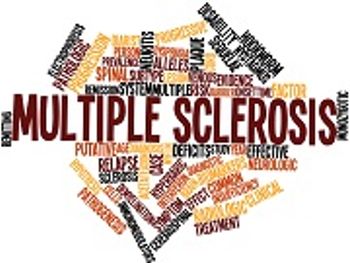
The FDA has approved the FreeStyle Libre 14-day Flash Glucose Monitoring system, now the longest-lasting self-applied continuous glucose monitor (CGM) in the US market.

The FDA has approved the FreeStyle Libre 14-day Flash Glucose Monitoring system, now the longest-lasting self-applied continuous glucose monitor (CGM) in the US market.

Adults with diabetes are 2 to 4 times more likely to have cardiovascular disease, which includes heart disease, heart failure, heart attack and stroke, than people without diabetes

A significant and positive association has linked common allergic conditions to autism spectrum disorder (ASD) in children.

The therapy has been approved to treat pemphigus vulgaris (PV), a condition characterized by progressive blistering of the skin and mucous membranes

With the approval, rituximab has become the first biologic therapy approved by the FDA for PV, and the first major advancement in treatment of the condition in 6 decades.

A new report from the US Centers for Disease Control and Prevention (CDC) has shown that suicide rates are rising in nearly every state.

Esketamine is a glutamate receptor modulator capable of restoring synaptic connections in the brains of patients with depression.

Investigative migraine therapy galcanezumab has reported more statistically significant benefits across multiple relevant outcomes.

A new study has found that patients with chronic obstructive pulmonary disease (COPD) better manage proper inhaler use with 1 branded single-use device than others.

Antibiotics may worsen the care of some adult patients hospitalized with asthma exacerbations.

Mepolizumab (Nucala) consistently improves exacerbation reduction and asthma control in patients with severe eosinophilic asthma.

Adults that use marijuana and cocaine generally experience the worst possible outcomes of a myocardial infarction (MI), according to a recent study.

Hemospray is a device designed to control forms of bleeding in the gastrointestinal tract.

PaxVax, an independent specialty vaccine company, is developing the prophylaxis.

The study found a calculable personal genetic risk score that was applicable to approximately 60,000 patients.

Patients with relapsing MS who switched from interferon therapy to teriflunomide (Aubagio) experienced improvements in treatment satisfaction.

A landmark trial comparing triple therapy fluticasone furoate/umeclidinium/vilaterol (FF/UMEC/VI [Trelegy Ellipta]) versus FF/VI (Relvar; Breo) or FF/UMEC (Anoro) found the former is markedly better in reducing annual rate of on-treatment of moderate/severe exacerbations in patients with chronic obstructive pulmonary disease (COPD).

New analysis from a phase 3 trial reports that oral, once-daily siponimod (BAF312) consistently reduced disability progression in patients with secondary progressive multiple sclerosis.

An artificial pancreas can improve blood sugar control for people with type 1 diabetes (T1D), according to a new study.

A retrospective cohort study has found that type 1 diabetes — not type 2 — is more prominent in areas with poor food options.

Officials with the FDA have approved marketing of the first medical device to use artificial intelligence (AI) to detect notable eye disease diabetic retinopathy (DR) in adults with diabetes.

Reported deaths of Parkinson’s patients treated with Acadia Pharmaceutical’s antipsychotic therapy pimavanserin (Nuplazid) has sparked concern.

US report indicates new drivers of death have emerged over time and have continued to unequally affect residents at the state level.

Bupivacaine liposome injectable suspension (Exparel) is the first long-acting, single-dose nerve block for patients undergoing upper extremity surgeries.

Alcohol-dependent patients with hepatitis C virus comorbidity found to have greater deficits in the frontal, precentral, superior, and orbital volumes.

Lower respiratory infections remained the most lethal infectious disease in the United States.

Newly-approved device could reduce the amount of pens adults prescribed to Toujeo need to use.

Time spent with billing and insurance-related activities through an electronic health record lead to wasteful spending.

Diabetic retinopathy is the leading cause of blindness among adults aged 20 to 74 years in the US.

Clinicians should personalize patient's goals for blood sugar control in type 2 diabetes.